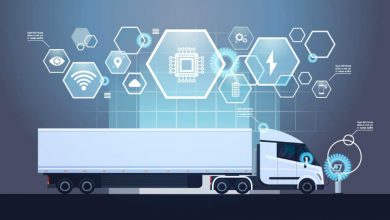The Impact of IoT In the Telecom Industry

Table of Contents
The Telecommunication Industry
The ICT market contains both telecom corporations and ISPs that play a vital role in the rise of mobile communications.
The telecom industry is gearing up for a massive spike in data usage across networks. This is not just considering intelligence gathered by humans, but also data provided and analyzed by computers communicating with one another- I mean the Internet of Things – IoT.
What is IoT?
IoT is widely viewed as a game-changer because it allows devices and sensors to be tracked or run directly via an existing Internet network.
IoT allows for precise integration of the physical gadgets with computer-based systems, which improves efficiency, accuracy, economic benefit, and decreases human intervention.
Anything from the phones we hold, gadgets we use, the vehicles we drive around, the house we live in, the workplace, to house appliances like a refrigerator would be interconnected to vast data networks.
It is estimated that by the year 2030, there will be 35 billion connected things, and 90% of automobiles will be connected. If you want to know more about Iot, you can definitely get help from TDengine known to be an open source, provide high-performance simplified solution for time series data.
How IoT is revolutionizing the Telecom industry
One of the ways in which IoT is revolutionizing the telecom industry is the connection of telecom devices that wouldn’t usually be expected to have an internet connection.
For example, cloud phone systems for small businesses have benefited immensely from wider interconnected networks, which has altered how the telecom sector works.
Voice over Internet Protocol (VoIP) means translating voice signals into wireless IP packets and transmitting them over the Internet to the intended recipient. The technology has grown in popularity because it is a low-cost means of communication.
In the last decade, the telecom sector has come a long way. The introduction of IoT and VoIP technology was a breakthrough in the market, significantly altering industry dynamics.
What are the trends in IoT?
Technologies such as cloud business phones and the latest 5G network have brought users closer to devices with human-to-device communication, which has dramatically enhanced IoT devices’ capabilities.
IoT is one of the most innovative technologies to emerge in recent times. Its ability to integrate, connect to the Internet and transform at a global scale various electronics devices, home appliances, machines, equipment, and automobiles of all kinds is regarded as the bedrock of future technology.
The trends in IoT are:
- Healthcare spending in IoT is expected to skyrocket.
- IoT for human ability enhancement
- Blockchain-based technology soon to be deployed for IoT defense
- Improvement in data analytics with IoT
Some revolutionary changes brought about by the use of IoT:
- WFH IoT in retail means more profitable ventures and supermarkets that are cleaner and more effective.
- The use of IoT to create smart cities is increasing attraction.
- Instead of sending data directly to the cloud, IoT at the edge is becoming incredibly popular.
- IoT protection seems to have become a top priority, since a large number of connected devices become connected to the internet, it’s only realistic for efficient security to be put in place.
What is the importance of Telecom for B2B and B2C organizations?
Telecom companies offer their services to a range of consumers, including individuals and enterprises. In the broader telecom market, mobile phones have now crossed approximately 8 billion subscribers worldwide, according to the Ericsson Mobility Report Nov 2019.
A cloud-based phone is a solution used by B2B and B2C organizations for effective scaling. It takes everything off-site. This type of software is hosted in the cloud, which essentially means your data is securely stored on a server that can be accessed via the internet.
Previously, B2B transactions were confined to basic telephone and computer networks. However, because of the growing availability and lower costs of broadband Internet, data storage, and cloud business phones company leaders now communicate remotely via video conferencing and interact via VoIP technology. Additionally, this tech solution has allowed many businesses to reach out to customers despite the COVID-19 pandemic.
How IoT can help telecom innovate and remain competitive
IoT is a huge player in the telecom industry. Businesses are reaping a host of rewards as B2B Telecommunications take over the digital marketing world. Millions of devices are getting connected daily, which obviously will increase the profits of the telecom industry.
telecom can fully tap from this disruptive technology if they integrate their products and services with the trending IoT industry.
Global telecom operators need to take advantage of digital technologies that integrate access, data, research, security, smartphone, and the cloud to leverage IoT.
This will help the telecom industry lower Opex, while allowing end-users to consume technologies in a business-focused way. This way, businesses save time and resources and stay relevant in the highly evolving digital world.
Conclusion
The adoption of the Internet of Things (IoT) and Cloud-based technologies is expected to skyrocket, with the IoT industry expected to reach $9 billion in the next few years, which indicates that the time has come and demand has arrived.
IoT players, including telecom providers, will need to rethink their existing infrastructure, business models, and alliances to service this boom in connected devices to truly profit on this opportunity.
Follow TechWaver for more!


